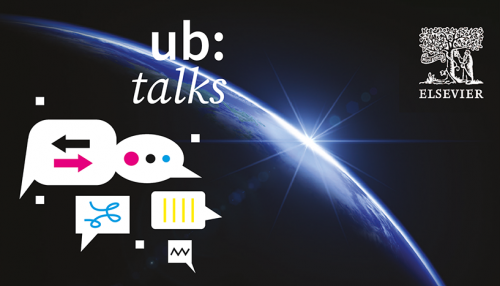9:00-12:00 | Talk by Max Vögler followed by workshop with Günther Hansen.
The ub:talks lecture series, organized by the Vienna University Library, invites experts from a wide range of disciplines to give fresh impetus for teaching, research and library work with lectures, seminars and workshops.
Please register by e-mail to Martin Wieland:
martin.wieland@univie.ac.at
Speaker
Max Vögler | VP Global Strategic Networks, Elsevier
Workshop leader
Günther Hansen | Solutions Account Manager, Elsevier
About the talk
The ub:talk will begin with a presentation on Global Science and the Role of Austria. It will be followed by a workshop by Günter Hansen on the bibliometric tool SciVal.
Over the past two decades, the geography of science has undergone significant transformations, characterized by increased investment in science and technology across nearly all nations, and a growing focus on how science has impact in the world. This talk will look at these developments from two perspectives: first, we will look at global science, analyzing shifts in authors, papers, and impact across the globe. And second, we will look at local science, analyzing how Austria has developed as a scientific nation within Europe and the world.
About the workshop
During this workshop we will analyze those global and local trends in science with the platform SciVal based on global research publications. We will look specifically at the following:
- Benchmark countries, institutions, researchers on various metrics based on publication output, including your own faculty/institute/ research group
- Identify global/local research trends and the concept of „research topics of prominence“ / understand the role of your own faculty/ research/research group within those global research topics
- Carve out research impact of your own faculty/research/research group in a global/national view
- Develop an internationalization strategy for your own research/ research group
- Understand global research opportunities in collaboration with industry / identify global research collaborators within industry for your faculty/research/research group
About Max Vögler
Max Vögler joined Elsevier in 2017 as Vice President, Global Strategic Networks - Germany, Austria and Switzerland. Previously he worked at the Deutsche Forschungsgemeinschaft (German Research Foundation, DFG), most recently as Director of its North America Office based in Washington DC.
His enthusiasm for publishing and information infrastructure began as a graduate student, when he worked at the Humboldt University in Berlin as coordinator of the internet history portal „Clio-online,“ and then at the DFG, where he began as a program officer in the Libraries and Information Systems division. Max holds a PhD in Modern European History from Columbia University in New York.
About Günther Hansen
Günther Hansen has worked at Elsevier for 15 years in various roles, today as Solutions Account Manager Research Intelligence for the Swiss, Austrian, Luxembourg and Liechtenstein markets, mainly responsible for Pure, SciVal, Scopus AI and other publication-based analytics platforms.Günnther Hansen has worked at Elsevier for 15 years in various roles, today as Solutions Account Manager Research Intelligence for the Swiss, Austrian, Luxembourg and Liechtenstein markets, mainly responsible for Pure, SciVal, Scopus AI and other publication-based analytics platforms.
Prior to 2004-2007, Günther worked at Elsevier in Oxford/England in translation rights sales for Science & Technology Books, followed by a scientific position 2008-2009 at the Leibniz Association, Leibniz Institute for Research and Information in Education (DIPF) in the field of Open Access. Günther holds a Master‘s degree in German Studies and Educational Sciences (University of Stuttgart) and in Library and Media Management (HdM Stuttgart).


